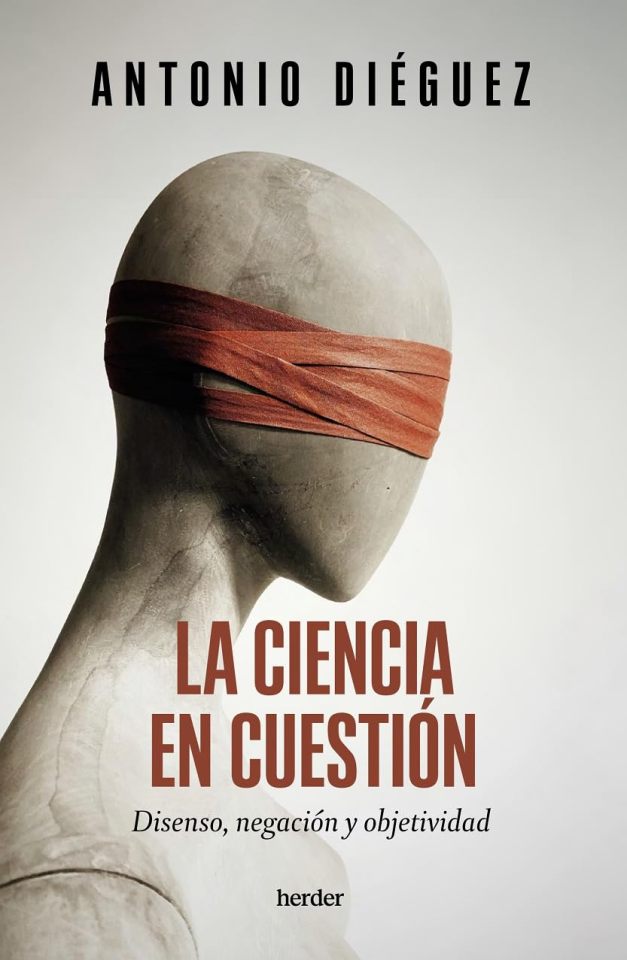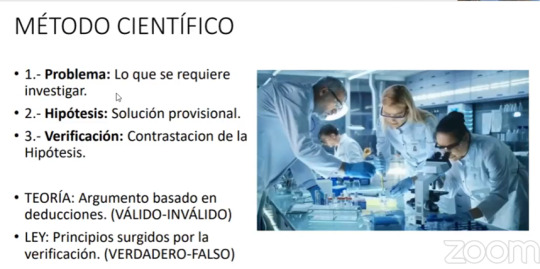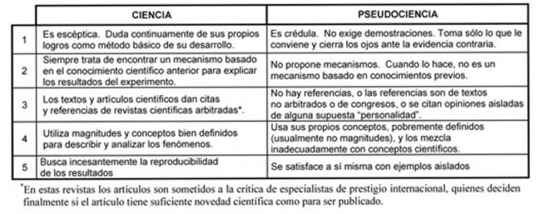#Paul Feyerabend
Explore tagged Tumblr posts
Text
Galileo made progress by changing familiar connections between words and words (he introduced new concepts), words and impressions (he introduced new natural interpretations), by using new and unfamiliar principles such as his law of inertia and his principle of universal relativity, and by altering the sensory core of his observation statements.
Paul Feyerabend, Against Method
11 notes
·
View notes
Text
"We need a dream-world in order to discover the features of the real world we think we inhabit" - Paul Feyerabend, Against Method
#philosophy#philosophy of science#philosopher#paul feyerabend#philosophy quotes#philosophers#quote#quotes#excerpts#literature#bookworm#booklover#book#book quotes
19 notes
·
View notes
Text
¿Qué es la ciencia?
En vista de la reciente publicación del libro de Antonio Diéguez La Ciencia en Cuestión (libro que aún no he leído pero que está ya encargado), vamos a hablar un poco de Filosofía de la Ciencia, tema que hace mucho que no tocábamos en el blog. Además, vamos a entrar por la puerta grande con la nada pretenciosa intención de intentar definir la ciencia, asunto que, como no podía ser de otro modo,…

View On WordPress
#Alan Sokal#Antonio Diéguez#Guillermo de Ockham#Imre Lakatos#Jean Bricmont#Karl Popper#Larry Laudan#Mario Bunge#Paul Feyerabend#Quine#Tesis Duhem-Quine#Thomas S. Kuhn
0 notes
Text
a 20as éveim legmeghatározóbb könyvei voltak (meg a Három dialógus a tudásról, de az nem tudom hol lehet):

de, ha már áltudományosság, akkor azért kitérnék arra a félmondatra a cikkben, miszerint a malleus maleficarum az "egyház gondozásában" jelent meg. azon túl, hogy a megfogalmazás totál anakronisztikus, azokban az időkben a könyvírás/kiadás nem így ment, még csak nem is igaz. a szerző ugyan hivatkozott valami pápai támogatásra, de az nem a könyvre, hanem az ő inkvizítori tevékenységére vonatkozott. a könyv speyerben jelent meg (még csak nem is rómában), a szerző egy helyi inkvizítor volt, de az "egyház" - ebben az esetben a kölni egyetem teológusai, és az ottani inkvizíció is - elítélték. később ugyan népszerűvé vált az inkvizotorok körében, de az egyház (gondolom a vatikánra gondolt a szerző) hivatalosan sem a megjelenését, sem a használatát nem támogatta.
more
13 notes
·
View notes
Text
paul feyerabend's "epistemological anarcho-leninism"
9 notes
·
View notes
Note
I picked up the funny Kuhn book on your rec, and noticed Karl Popper on the same shelf, framing himself in contrast. Do you have/know of any good critiques on Popper in general, or his indeterminism in particular? I'm guessing he didn't convince every Marxist and someone's bound to have responded by now.
yea popper sucks. i mean kuhn himself was responding to / critiquing popper; they very famously had a long ongoing dispute. but like i said before, kuhn is also not where it's at imo. like, not that academic citations are the be-all end-all of intellectual value, but there are reasons you don't typically see either of these guys cited by people working in history / philosophy of science these days lol.
anyway in regards to the marxism angle of this i will say: a major problem with hist/philsci is that these disciplines are pretty ensconced in universities (conservative institutionally & intellectually) and have also taken a long time to even start looking beyond the horizons of great man history, the 'western canon', &c. so the lack of marxists / communists in these fields is like, even more pronounced than in academic history more broadly. like it's insane that people like bob young and roger cooter and adrian desmond are still, like, standouts in this respect lol. so, although there are many many marxists who have responded to popper on those terms, and many many historians and philosophers of science who have responded on that side, the sliver of overlap here is a lot smaller than it should be.
i would definitely read with a critical eye and be on the lookout for places where these texts fail specifically because their authors are not engaging in materialist or properly historicised analysis, or are just blatantly reactionary themselves, in different ways to popper. but, a few places to start with political histsci and philsci critiques of him, or just useful accounts of his legacy and critics:
The Cambridge Companion to Popper (2016). Jeremy Shearmur and Geoffrey Stokes (eds.). <-usual disclaimer that cambridge edited vols. are methodologically, politically, and epistemologically playing it VERY safe. you often want to read them 'backwards', ie, read for what's not being said as much as for what's actually in there. consider this a document that shows what sorts of debates are being permitted, centred, and accepted as 'mainstream' and 'reasonable'.
Epistemological Battles on the Home Front: Early Neoliberals at War against the Social Relations of Science Movement (2021). Beddeleem, Martin. Journal of the History of Ideas Volume: 82 Issue: 4 Pages: 615-636. 10.1353/jhi.2021.0035
Relations between Karl Popper and Michael Polanyi (2011). Jacobs, Struan & Mullins, Phil. Studies in History and Philosophy of Science Volume: 42 Pages: 426--435.
Thoughts on political sources of Karl Popper's philosophy of science (1999). Jacobs, Struan. Journal of Philosophical Research Volume: 24 Pages: 445-457
Popper and His Popular Critics: Thomas Kuhn, Paul Feyerabend and Imre Lakatos (2014). Agassi, Joseph. ISBN: 3319065866
Science and Politics in the Philosophy of Science: Popper, Kuhn, and Polanyi (2010). Mary Jo Nye. Chapter in: Epple, Moritz & Zittel, Claus (2010) Science as Cultural Practice. ISBN: 9783050044071
Karl Popper, the Vienna Circle, and Red Vienna (1998). Hacohen, Malachi Haim. Journal of the History of Ideas Volume: 59 Pages: 711-734.
Science, politics and social practice: Essays on Marxism and science, philosophy of culture and the social sciences in honor of Robert S. Cohen (1995) Gavroglu, Kostas; Stachel, John J.; & Wartofsky, Marx W. (Eds.). <-haven't read the popper chapter in this, can't promise it's good
34 notes
·
View notes
Text
In the absence of an objective grounding — notably, the very real human potentialities that have been formed by the natural, social, moral, and intellectual development of our species — notions like freedom, creativity, and rationality are reduced to “intersubjective” relations, underpinned by personal and individualistic preferences (nothing more!) that are “resolved” by another kind of tyranny — notably, the tyranny of consensus. Lacking foundations of any kind, lacking any real form and solidity, notions of “intersubjectivity” can be frighteningly homogenising because of their seemingly “democratic” logic of consensuality — a logic that precludes the dissensus and ideological dissonance so necessary for stimulating innovation...
Ideas that are objectively grounded, unlike those that are relativistically asserted, can provide us with a definable body of principles with which we can seriously grapple. The foundational coherence and, in the best of cases, the rationality of objectively grounded views at least make them explicit and tangible and free them from the vagaries of the labyrinthine personalism so very much in vogue today. Unlike a foundationless subjectivism that is often reducible, under the rubric of “autonomy,” to personal preferences, objective foundations are at least subject to challenges in a free society. Far from precluding rational critique, they invite it. Far from taking refuge in an unchallengeable nominalist elusiveness, they open themselves to the test of coherence. Paul Feyerabend’s corrosive (in my view, cynical) relativism to the contrary notwithstanding, the natural sciences in the past three centuries have been among the most emancipatory human endeavors in the history of ideas — partly because of their pursuit of unifying or foundational explanations of reality. In the end, what should always be of concern to us is the content of objective principles, be they in science, social theory, or ethics, not a flippant condemnation of their claims to coherence and objectivity per se.
Indeed, despite claims to the contrary, relativism has its own hidden “foundations” and metaphysics. As such, because its premises are masked, it may well produce an ideological tyranny far more paralysing than the “totalitarianism” that it imputes to objectivism and an expressly reasoned “foundationalism." Insofar as our concerns should center on the bases of freedom and the nature of reason, modern relativism has “decentered” these crucial issues into wispy expressions of personal faith in an atmosphere of general skepticism. We may choose to applaud the relativist who upholds his or her strictly personal faith by reiterating Luther’s defiant words at Worms, Hier stehe ich, ich kann nicht anders (“Here I stand, I cannot do otherwise”). But to speak frankly, unless we also hear a rational argument to validate that stand, one based on more than a subjective inclination, who gives a damn about this resolve?
- Murray Bookchin, History, Civilisation, and Progress: Outline for a Criticism of Modern Relativism
4 notes
·
View notes
Text
"Gli scienziati hanno ingannato se stessi e gli altri sulla loro attività: essi hanno più autorità di quanto non meritino e anche i procedimenti più stupidi e i risultati più risibili sono circondati da un’aura di eccellenza. È ormai tempo di ridimensionarli".
-Paul Feyerabend
3 notes
·
View notes
Text
Epistemologia
Episteme: ciencia
Logia: Tratado
“Tratado sobre la ciencia”
Platon: Obra La republica
DOXA VS EPISTEME
Opinion ciencia
Subjetivo objetivo
Sin fundamento fundamentado
FUNCIONES DE LA CIENCIA
Describe: Dar la caracterización d ellos objetos observados.
EXPLICA: Justifica con conocimiento de causa (CAUSA-EFECTO)
Predice: adelanto de juicio con lo observado
Aplica: uso del conocimiento

CARACTERISTICAS:
Sistematico: es organizado en conjuntos de argumentos
Metodico: pasos a seguir para obtener el conocimiento
Selectivo: investiga una parcela de la realidad.
Falible: se perfecciona con el tiempo.
PRINICIPOS DE DEMARCACION.
Son lso criterios que permiten el carácter o estatus científico de un taeoria, es decir, distinguir una ciencia empírica de un sistema metafisico. Los criterios mas usados son: El prinicio de verificalidad (rudilf Carnap) y el principio de falsabilidad (Karl Popper).

TEORIAS EPISTEMOLOGICAS:
*Neo-positivismo:
Circulo de Viena
Influencia de comte y Wittgenstein
Propone un análisis riguroso de lenguaje
Modelo: CC.NN.
Ciencia: Método inductivo
Criterio de demarcación, verificación
Rechaza la metafísica.
Representantes: Moritz schlick, Rudolf Carnap, Otto neurah, Alfred Ayer, otros
*Racionalismo critico
Karl Popper
Rechaza el principio de verificación
Critica el método inductivo
Ciencia: propone el método
Hipotetico-deductivo
Criterio de demarcación:falsacionismo.
*Relativismo epistemologico:
Representante; Thomas Kuhn. Obra: La estructura de las revoluciones científicas.
Fases:
Fase: pre. Científica: recolectan observaciones un plan definido
Fase: ciencia normal: teoría científica que prevalece.
Fase: ciencia revolucionaria: Nivel intolerable de anomalías. El paradigma vigente entra en crisis y compite con otras nuevas teorías. (Asimilacion del nuevo paradigma).
*Anarquismo epistemologico
Fue propuesta por PAUL FEYERABEND. Afirma que la ciencia avanza al no sujetarlas a normas metodológicas establecidas o convencionales. L a única regla para la investigación científica debe ser: “Se permite todo, o el todo vale.”
Se debe restringir el método científico.
*Epistemologia de Mario Bunge
2 notes
·
View notes
Photo

Le géocentrisme par rapport à l’héliocentrisme — L’Église plus rationnelle que Galilée : la position du pape Benoît XVI sur l'affaire Galilée, apparue dans un discours en 1990, s’appuyait sur l’interprétation du philosophe des sciences Paul Feyerabend : https://bitl.to/3JKR
0 notes
Text
The Roman Church in addition claimed to possess the exclusive rights of exploring, interpreting and applying Holy Scripture. Lay people, according to the teaching of the Church, had neither the knowledge nor the authority to tamper with Scripture and they were forbidden to do so. This comment, whose rigidity was a result of the new Tridentine Spirit, should not surprise anyone familiar with the habits of powerful institutions. The attitude of the American Medical Association towards lay practitioners is as rigid as the attitude of the Church was towards lay interpreters - and it has the blessing of the law. Experts, or ignoramuses having acquired the formal insignia of expertise, always tried and often succeeded in securing for themselves exclusive rights in special domains. Any criticism of the rigidity of the Roman Church applies also to its modern scientific and science-connected successors.
Paul Feyerabend, Against Method
4 notes
·
View notes
Photo

Le géocentrisme par rapport à l’héliocentrisme — L’Église plus rationnelle que Galilée : la position du pape Benoît XVI sur l'affaire Galilée, apparue dans un discours en 1990, s’appuyait sur l’interprétation du philosophe des sciences Paul Feyerabend : https://bitl.to/3JKR
0 notes
Text
Nem lenne rossz cikk, ha venné a fáradságot, és a végén elemezné a globális felmelegedést mint tudományos (vagy áltudományos) elméletet
1 note
·
View note
Text

feyerabend this day right now.. nowadays the sant'uffizio and the index more defended by german order and here too by Paul... just it is not my fault and Galilei is not divine... we may say errare humanum est and that he made him also pipi and popo but we need - the which hunt is still astonishing continuing - another language for explaining nowadays... bye... joe...
0 notes
